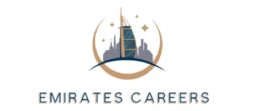
Mastering Job Interviews; Job interviews can be nerve-wracking experiences, but with the right preparation, you can confidently navigate through them and make a lasting impression. One key aspect of preparation is familiarizing yourself with common interview questions and formulating thoughtful responses. In this blog, we’ll explore frequently asked job interview questions, provide tips on how to answer them, and offer strategies to help you master any job interview.
Why Prepare for Job Interviews?
Preparation is crucial for several reasons:
- Builds Confidence: Knowing what to expect helps reduce anxiety and boosts your confidence.
- Demonstrates Professionalism: Being well-prepared shows potential employers that you are serious and professional.
- Enhances Performance: Preparation allows you to articulate your thoughts clearly and effectively during the interview.
- Increases Success Rate: Understanding common questions and having strong answers improves your chances of securing the job.
Frequently Asked Job Interview Questions
Mastering Job Interviews; Here are some common job interview questions and tips on how to answer them:
- Tell me about yourself.
- Tip: This is often the first question asked. Provide a brief overview of your professional background, highlighting your most relevant experiences and skills. Keep it concise and focused on your career.
- Example Answer: “I have over five years of experience in digital marketing, specializing in social media strategy and content creation. I have a proven track record of increasing brand engagement and driving sales through innovative campaigns.”
- Why do you want to work here?
- Tip: Research the company beforehand and tailor your answer to align with their values, culture, and goals. Show enthusiasm for the role and the organization.
- Example Answer: “I admire your company’s commitment to sustainability and innovation. I am particularly excited about the opportunity to contribute to your cutting-edge projects and be part of a team that values continuous improvement.”
- What are your strengths and weaknesses?
- Tip: Choose strengths that are relevant to the job and provide examples of how you’ve demonstrated them. For weaknesses, select a minor skill you are actively working to improve and explain your progress.
- Example Answer: “One of my strengths is my attention to detail, which has helped me consistently deliver high-quality work. A weakness I’ve been addressing is my public speaking skills. I’ve been taking courses and practicing regularly, and I’ve seen significant improvement.”
- Describe a challenging situation you faced and how you handled it.
- Tip: Use the STAR method (Situation, Task, Action, Result) to structure your response. Focus on a specific example and highlight your problem-solving skills.
- Example Answer: “In my previous role, we faced a tight deadline for a major project. I coordinated with different departments to streamline our processes, delegated tasks effectively, and ensured open communication. We completed the project on time and exceeded client expectations.”
- Where do you see yourself in five years?
- Tip: Show ambition and alignment with the company’s goals. Indicate a desire for growth and how the position you’re applying for fits into your career plan.
- Example Answer: “In five years, I see myself in a leadership role, contributing to the strategic direction of the company. I am eager to take on additional responsibilities and continue developing my skills to support the organization’s growth.”
- Why are you leaving your current job?
- Tip: Be honest but diplomatic. Focus on your career goals and what you are looking for in a new opportunity rather than criticizing your current or previous employer.
- Example Answer: “I have learned a great deal at my current job, but I am looking for new challenges and opportunities to grow. I am particularly interested in this role because it aligns with my career aspirations and offers the chance to work on exciting projects.”
- How do you handle stress and pressure?
- Tip: Provide specific strategies you use to manage stress and give examples of how you’ve successfully handled high-pressure situations.
- Example Answer: “I handle stress by staying organized, prioritizing tasks, and maintaining open communication with my team. During a busy period at work, I managed multiple deadlines by creating a detailed schedule and ensuring I took short breaks to stay focused and productive.”
- Do you have any questions for us?
- Tip: Always have a few questions prepared to show your interest in the role and the company. Ask about the team, company culture, or future projects.
- Example Questions: “Can you tell me more about the team I would be working with?” or “What are the biggest challenges the company is currently facing?”
Tips for Acing Your Job Interview
- Research the Company: Understand the company’s mission, values, products, and recent developments. This will help you tailor your answers and show genuine interest.
- Practice Your Answers: Rehearse your responses to common questions with a friend or in front of a mirror. This will help you articulate your thoughts more clearly during the actual interview.
- Dress Appropriately: Dress in professional attire that suits the company culture. When in doubt, opt for a more formal look.
- Be Punctual: Arrive on time or a few minutes early. Being punctual demonstrates your reliability and respect for the interviewer’s time.
- Bring Necessary Documents: Have copies of your resume, cover letter, and any other required documents. Bring a notebook and pen for taking notes.
- Show Enthusiasm: Display positive body language, maintain eye contact, and smile. Show enthusiasm for the role and the company.
- Follow Up: Send a thank-you email after the interview, expressing your appreciation for the opportunity and reiterating your interest in the position.
Conclusion
Mastering job interviews requires preparation, practice, and confidence. By familiarizing yourself with common interview questions and crafting thoughtful responses, you can make a positive impression on potential employers. Use the tips and strategies provided in this blog to enhance your interview skills and increase your chances of landing your dream job.
